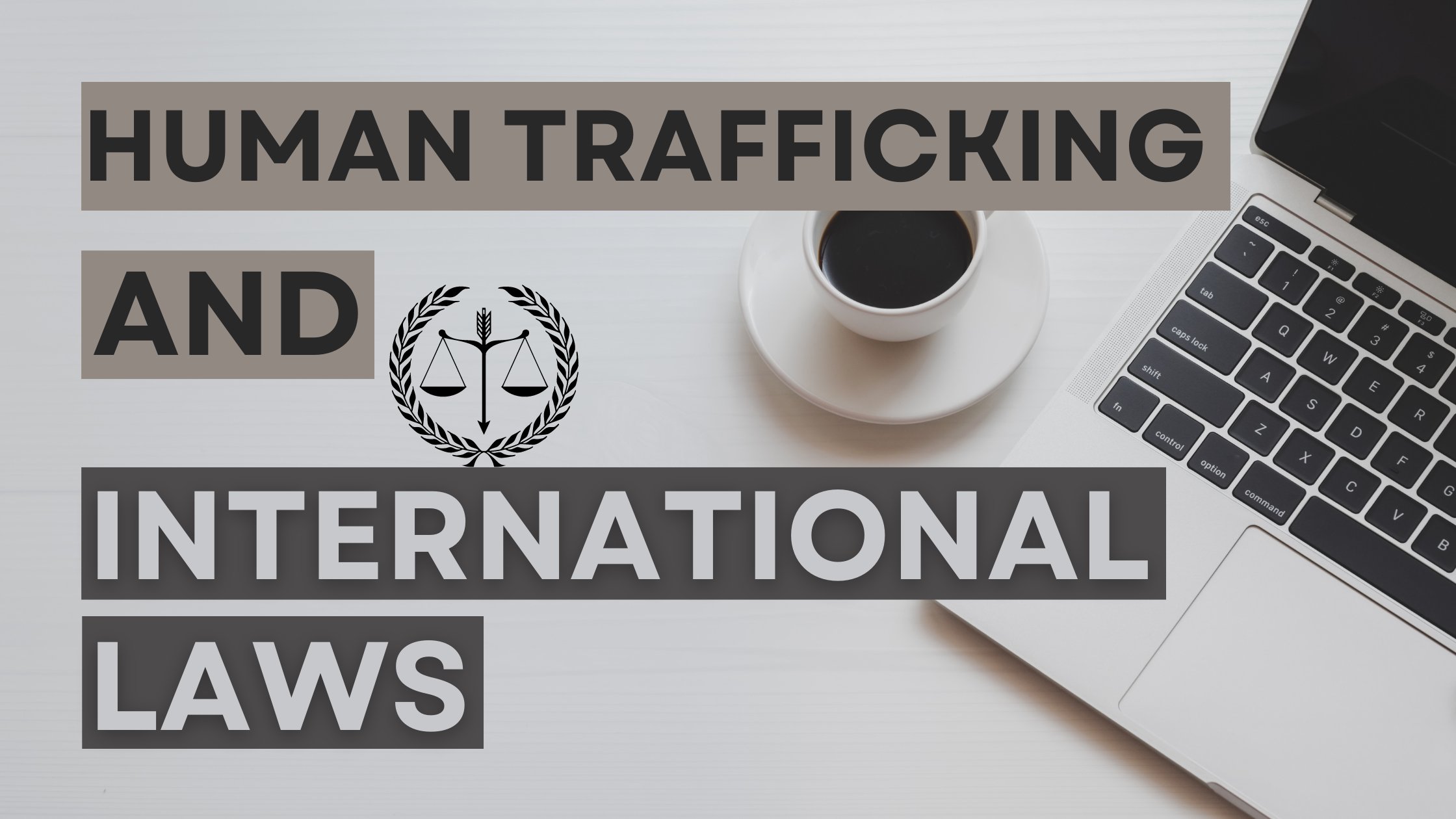HUMAN TRAFFICKING AND INTERNATIONAL LAWS

Introduction:
Human beings as members of society are an asset to it. Everyone living in the society is given equal rights to lead a sustainable and free life but the higher sections of society have always tried to oppress the lower section. There have been several instances of exploitation of human beings, especially women, children and migrants. Human Trafficking is one of the major issues which causes exploitation in the form of slavery, bonded labour, torture, prostitution, etc. These acts are a clear violation of human rights.
What is Human Trafficking?
Human Trafficking or Trafficking in person is defined as the illegal transportation of humans by use of force for the purpose of slavery, prostitution, organ dealing, or any such activities which benefit others financially:
United Nations has described it as-Human Trafficking is the recruitment, transportation, transfer, harbouring or receipt of people through force, fraud or deception, with the intention of exploiting them for profit. Men, women and kids of every age and from all backgrounds can become sufferers of this crime, which occurs in every region of the world. The traffickers frequently use violence or fraudulent employment agencies and fake promises of education and job opportunities to trick and coerce their victims.
Types of Exploitation:
United Nations defines 8 types of exploitation-
- Sexual Exploitation: It forms the most prevalent job for trafficked humans. They are encountered in various sexual works such as child sex rings, pornography, prostitution, nude modelling, etc. these people are at a higher risk of getting serious infections such as HIV, AIDS and other sexually transmitted diseases which can’t be treated easily and lead to serious disorders in the body.
- Forced Labour or Slavery: This is one of the oldest practices which is still prevalent in various parts of the world. Individuals are forced to work for unlimited hours in adverse conditions without food and wages.According to the UN Office of the High Commissioner for Human Rights, “the word ‘slavery’ these days covers a number of human rights violations. In addition to traditional slavery and the slave trade, these abuses consist of the sale of kids, child prostitution, child pornography, the exploitation of child labour, the sexual mutilation of a girl child, the use of children in armed conflicts, debt bondage, the traffic in persons and in the sale of human organs, the exploitation of prostitution, and certain practices under apartheid and colonial regimes.”
- Organ Removal: Various parts of the body are removed illegally and without individuals’ consent and are sold at a very good price.
- Forced Begging: Children trafficked are forced into begging. They are given daily targets which need to be fulfilled and if the same is not done then, they are tortured.
- Child Soldiers: Children are sometimes trafficked for various military services where they experience armed combats at a very small age.
- Forced Marriage: Forced and exploitative marriages are also a serious issue. Young women and girls are forced to get married in such households where they are tortured and exploited daily.
- Debt Bondage: Individuals are forced to sign illegal contracts which require working for an unlimited period of time to get rid of the debt taken from another person.
- Domestic Servitude: Children are often sold or sent to areas with the promise of a better life but instead are pushed into various forms of exploitation. Domestic servitude places children from excessively large families into domestic service, often for extended periods of time.
Laws and Treaties relating to the prevention of Human Trafficking:
- International Convention for the Suppression of Traffic in Women and Children (1921).
- The Universal Declaration of Human Rights (1948)
- The Convenat on Civil and Political Rights (1966)
- Worst Forms of Child Labour Convention (1999)
- Protocol to Prevent, Suppress and Punish Trafficking in Persons, Especially Women and Children (2000)
- Article 4 of the United Nations Declaration of Human Rights prohibits slavery and servitude. The prohibition of slavery is now a rule of International Law.
- International Labour Conference of the ILO, a specialised agency of the UN, in the year 1957, adopted the Abolition of Forced Labour Convention. Article 23 of the Indian Constitution prohibits beggar and forced labour in any form.
- Adoption of the Palermo Protocol for the prevention of child and human trafficking, prostitution, slavery and servitude.
- The Office of the United Nations High Commissioner for Human Rights analyses the impact of migrant laws and keep a check on migrant activities.
- Establishment of several international and national tribunals for the prevention of Human Trafficking such as the International Criminal Court, European Court for Human Rights, etc.
Conclusion:
It is a worldwide, transnational problem which can only be solved by international cooperation. All nations should implement strict rules for the prevention of human trafficking. Along with this these nations and the UN should keep a check on the nations with a higher rate of trafficking crimes and strict action should be taken against those violating these crimes.













